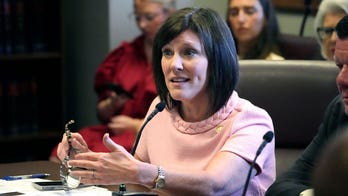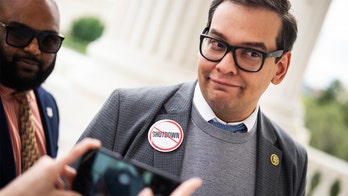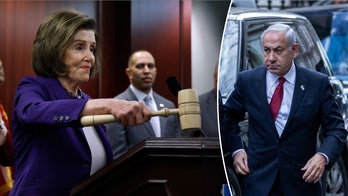They called it the Board of Education.
A room tucked away on the first floor of the Capitol is where legendary House Speaker Sam Rayburn (D-TX) would invite an inner-circle of colleagues to grouse over politics at the end of a long day. Rayburn and his friends often punctuated the bull sessions with rounds of poker, drenched with shots of bourbon.
The room served another purpose, too.
The Board of Education was also where Rayburn would summon recalcitrant lawmakers when the powerful speaker needed their vote to pass a key piece of legislation.
There were a lot of ways Rayburn might exhort his colleague to vote yes. He might reason with them. Horse-trade with them. Twist their arm. Or downright threaten them.
But it didn't matter which method Rayburn deployed.
He usually got his way.
After all, Rayburn was the House Speaker. And the Member of Congress, well, was just the Member of Congress.
Such hard-nosed tactics were the norm during Rayburn's reign. Lyndon Johnson used similar gambits when he served as Senate Majority Leader. Today, political woodsheds are relics of a bygone era. And while they are virtually non-existent now, it's easy to understand why Rayburn and Johnson rarely lost on Capitol Hill.
++++++++++++++++++++++++++++++++++++++++++++++++++++++++++++++
On Thursday afternoon, the House of Representatives rifled through a lengthy series of votes on procedural and minor legislative matters. It prepared to debate the debt ceiling bill crafted by House Speaker John Boehner (R-OH). The protracted vote sequence was by design. The House would vote on Boehner's debt legislation in just a few hours. And the Republican leadership team wanted to take the time to chat up wavering lawmakers and make sure they pinned down how every member was going to vote.
With a federal default swinging in the balance, Republicans couldn't afford to let the House defeat Boehner's measure. So these "bed-check" votes provided an opportunity for the GOP whip team to assess where they were and if they needed to do some work.
However, some of the best action wasn't unfolding on the House floor. Instead, Boehner conducted individual meetings with rank-and-file Republicans in his ceremonial office nearby. It's the same room where Boehner spoke to a nationwide TV audience Monday night after President Obama's address.
The ceremonial office is no "Board of Education." And Boehner's political demeanor can hardly be mistaken for the take-no-prisoner approach of Sam Rayburn.
One lawmaker who asked not to be identified suggested that may be the problem. Especially when Republicans finally had to cancel a vote on the debt ceiling bill last night because they didn't have the numbers to pass it.
Boehner isn't Sam Rayburn. But he's definitely lifted some pages from Rayburn's playbook.
Perhaps Boehner's ceremonial suite will earn the moniker the "Get you ass in line" room. That would reflect the rousing demand Boehner made Wednesday for lawmakers to support his debt bill.
But Boehner needs to experience some success in there first. And on Thursday, things simply didn't work out.
During the vote series, House Appropriations Committee Chairman Hal Rogers (R-KY) played wingman for Boehner. Rogers would go to search for a lawmaker who was either a "no" or "undecided" on the bill and escort them back to the ceremonial office - after first running through a gauntlet of reporters.
Following the confab, the lawmaker would then have to walk back through the wall of journalists, each hectoring him or her about their decision.
First there was Rep Tom McClintock (R-CA). After his tete-a-tete with Boehner, reporters chased McClintock down the hall, asking how he would vote.
McClintock explained that the House voting machines sport a red light and a green light. And when the vote was called, the color of the light next to his name would indicate his vote.
Late on Thursday, a top aide to McClintock emailed to say the Congressman would vote no.
A few minutes later, Boehner aide Trevor Kolego plucked Rep. Chuck Fleischmann (R-TN) off the floor and chaperoned the freshman to his audience with the speaker. Usually gregarious and friendly, Fleischmann clenched his jaw and grimaced, looking as though he had been called to the principal's office.
Fleischman had been a no. But a few hours later, the Congressman's office emailed a press release, signaling he was now a yea.
"While this bill is not perfect...." started the Fleischmann statement.
At one point, Boehner emerged from the room and by walked by himself to the House floor. He returned a few minutes later with Rep. Bill Posey (R-FL) in tow.
And the lawmaker parade continued.
++++++++++++++++++++++++++++++++++++++++++++++++++++++++++++++
Before Thursday, it was never quite clear if Republicans had the votes. They delayed action on the legislation earlier in the week to try to increase the cuts and secure a few more votes.
At a Thursday press conference, Boehner didn't offer an emphatic declaration that "this bill will pass." Instead, Boehner implored his colleagues for help.
"Let's pass this bill and avoid a crisis," he said.
I asked Boehner why he hadn't been more definitive and instead pleaded for them to approve the measure.
Without uttering a word, Boehner stepped away from the lectern and gestured to his top vote counter, House Majority Whip Kevin McCarthy (R-CA). McCarthy facetiously "thanked" his colleague for yielding and indicated he never talks about the vote count. To that, I pointed out that's why I asked Boehner. Laughter ensued. But McCarthy hardly seemed confident about the tally.
"We're moving in the right direction," he said.
But apparently not far enough.
Come 5:30 pm, the House was running out of debate time on the Boehner legislation. So rather than risk a defeat on the floor, the GOP thrust itself into a slate of non-controversial bills that named post offices. This would buy the whip operation more time to line up the votes. It was ironic that debating bills to name postal facilities might actually help the GOP finish a major bill. Last fall, Republicans railed against the Democrats for allowing all sorts of honorary resolutions to name weeks in honor of perfumes and vegetables. So when the GOP took charge, it limited consideration of those packages.
"We're pretty well committed to the House doing substantive work," said Boehner in May. "All of the commemorative resolutions that used to be brought to the floor of the House, some of them, I thought were quite meaningless."
Nonetheless, the House plunged into a debate about naming a post office in Peoria, IL after Charles "Chip" Lawrence Chan.
Spending time on that post office apparently didn't help conjure the votes. Nor did a bill to name a post office in Geneva, NY after Blaine Riccione. Nor an effort to name a post office in Pasadena, CA after Oliver Goodall.
The post office debate might not have been enough to get Boehner's bill on its appointed rounds. But freshman Rep. Jeff Duncan (R-SC) had another idea, even though he was a no vote.
A few reporters swarmed around Duncan near the Rotunda after they thought he was en route to meet with leadership.
"No, I'm just going to the member's chapel to pray about this," Duncan said. "I think they need it."
As late afternoon dissolved into evening, various lawmakers shuttled in and out of the offices belonging to Boehner, House Majority Leader Eric Cantor (R-VA) and McCarthy. Reporters chased Reps. Joe Walsh (R-IL) and Trent Franks (R-AZ) across Statuary Hall.
At one point, Rep. Quico Canseco (R-TX) emerged from leadership suite. Canseco claimed he wasn't being whipped. He said he was simply in there "charging my phone."
The positions lawmakers assume on issues are often characterized as being a "lean yes" or a "solid no."
On Thursday, Rep. Louie Gohmert (R-TX) introduced an entirely different rubric delineating his voting status.
On Wednesday, Gohmert characterized himself as a "beaten-down no." After the leadership worked Gohmert over Thursday, the Texas Republican downgraded his vote condition to a "bloody, beaten-down no."
And that's when the leadership brought in the pizza.
Interns and junior staffers wheeled gigantic dollies laden with prodigious stacks of pizza boxes into McCarthy's office. One cart spotted outside the Capitol was loaded up with 19 pizza boxes.
As it turns out, pizza may be the only commodity leadership could offer to reluctant lawmakers to persuade them to vote yea.
After all, Republicans ran on a platform that banned earmarks, particular provisos inserted into spending bills that dictate how much the government should allocate for a lawmaker's pet project.
In previous Congresses, lawmakers often traded earmarks like kids trade baseball cards to win support for a given issue.
Rep. Jeff Flake (R-AZ) is one of the most-ardent anti-earmark crusaders in Congress. Flake told FOX Wednesday he was a no. And even though he wouldn't declare where he stood on the legislation after meeting with leadership, Flake believes the no-earmark actually improved these negotiations.
"It is the most refreshing thing to see what's going on there," said Flake as he emerged from a meeting where lawmakers wolfed down pizza. "This type of thing a few years ago would have cost us $20 billion. Now, a couple of pizzas, and you're there."
But they weren't there, regardless of the pizza. And the GOP pulled the bill from the floor.
"It's apparent we don't have the votes for a number of reasons," lamented House Rules Committee Chairman David Dreier (R-CA) at an 11 pm meeting.
At the end of the night, no one had a specific recipe for finding the votes. All leadership aides pointed to was a 10 am GOP Conference meeting. That's where they expected lawmakers to offer suggestions on finding their way out of this political cul-de-sac.
And by Friday morning, the leadership didn't even have pizza to use as leverage with the rank-and-file.
"Breakfast will not be served," warned an email sent to Republican members.
Only coffee and snacks.




